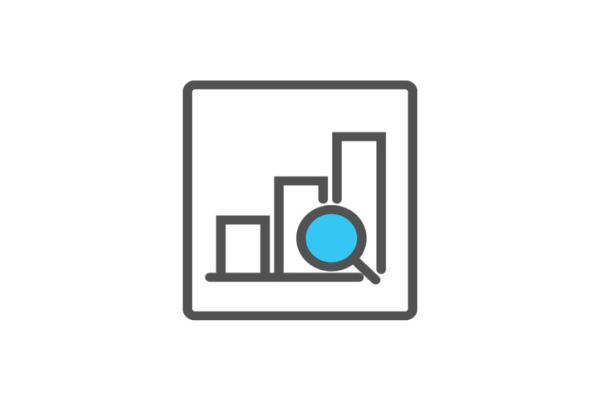Falsified medicines are often disguised as authentic medicines but may contain ingredients of bad or toxic quality, or in the wrong dosage. As they have not been properly checked for quality, safety and efficacy, as required by strict EU authorisation, they can pose a real risk to your health.
As falsified medicines become more sophisticated, the risk of them reaching patients in the EU increases. They represent a serious threat to global health and call for a comprehensive strategy both at European and international level.
Legal framework – The Falsified Medicines Directive
Following adoption by the European Council and the European Parliament, the Falsified Medicines Directive (Directive 2011/62/EU) was published on 1 July 2011, and applies since 2 January 2013. It amended Directive 2001/83/EC.
This Directive introduces harmonised European measures to fight medicine falsifications and ensure that medicines are safe and that the trade in medicines is rigorously controlled. Measures include:
- Obligatory safety features – a unique identifier and an anti-tampering device - on the outer packaging of medicines
- A common, EU-wide logo to identify legal online pharmacies
- Tougher rules on import of active pharmaceutical ingredients
- Strengthened record-keeping requirements for wholesale distributors.
Implementation of the Falsified Medicines Directive
Directive 2011/62/EU provides the basis for a number of legislative implementation measures to be carried out by the Commission. See the overview.
Safety features
Commission Delegated Regulation (EU) 2016/161 details the characteristics of the safety features, how medicine authenticity should be verified and by whom. The delegated Regulation, and the new medicine verification system it lays down, will apply as of 9th February 2019. There are currently no plans to exempt additional prescription medicines or product categories from the requirements to bear safety features (“whitelisting”).
The Commission and Member States meet regularly in the Expert Group 'Delegated act on safety features for medicinal products for human use' to discuss the implementation of the safety features. Agendas and minutes from the meetings are published on the Commission Register of Expert Groups.
All stakeholders must be ready to meet their obligations on 9th February 2019. For further details please see the joint letter from the European Commission, European Medicines Agency and Heads of Medicines Agency network (available in all EU languages).
- Questions and Answers document (version 21, May 2024)
- EMA and the European Commission implementation plan for centrally-authorised products
- CMDh implementation plan for nationally authorised products
- Stakeholder Workshop Commission presentation on the new safety features rules and workshop minutes
- Expert Group paper on the implementation of the safety features in the hospital pharmacy setting
- Aide-Memoire for Inspection, NMVO Assessment questionnaire and Guideline for Member State Supervision (September 2018)
- Inspection Report Template for NCAs (November 2018) and Procedure for the exchange of supervision reports (May 2019)
- Aide-Memoire for GMP Inspections, Aide-Memoire for GDP Inspections and Aide-Memoire for Pharmacy Inspections
Background to the delegated Regulation
The Falsified Medicines Directive places the Commission under an obligation to adopt a delegated act setting out the details of the safety features, including how medicine authenticity should be verified and by whom. The information gathered from a public consultation was used as the basis for an impact assessment.
- Concept paper for public consultation
- Public Consultation responses
- Impact assessment report.
Common logo for authorised websites
The Falsified Medicines Directive introduces a common logo for websites of legally-operating online pharmacies/retailers which must be clearly displayed on every page of the website. The common logo should be recognisable throughout the EU, while also making clear which EU country the online pharmacy/retailer is from.
- Concept paper for public consultation
- Replies to the consultation.
- Commission Implementing Regulation
- More information on the logo.
Importation of active substances
The Falsified Medicines Directive introduces EU-wide rules for the importation of active substances. These can only be imported if they are accompanied by written confirmation from the competent authority of the exporting country that attests that the standards of good manufacturing practice and control of the manufacturing site are equivalent to those in the EU.
This requirement is waived for certain third countries listed by the Commission.
- Directive 2001/83/EC (Articles 46b(2), 111b, 111b(2))
- Concept paper for public consultation in 2011
- Consultation responses
- Implementing Decision
- Questions and Answers document (version 7, June 2016)
- Information leaflet
- Information on listed third countries and how to apply for listing.
Good manufacturing practice (GMP) for active substances
The Directive also places an obligation on EU countries to take appropriate measures to ensure that manufacturers of active substances on their territory comply with good manufacturing practice (GMP). It also places an obligation on the Commission to adopt, by means of delegated acts, the principles and guidelines of good manufacturing practice for active substances.
Medicinal products introduced into EU
The Directive also contains a provision obliging EU countries to take the necessary measures to prevent medicinal products that are introduced into the EU, but not intended to be sold in the EU, from entering into circulation if there are sufficient grounds to suspect that they are fake.
- Concept paper for public consultation
- Consultation responses.
Following consultation with stakeholders and EU countries, adoption of this delegated act was shelved as adoption is optional.
Penalties for the falsification of medicines
The Directive requires EU countries to introduce effective, proportionate and dissuasive penalties for the falsification of medicines and misconduct in relation to active substances and excipients. In January 2018, the Commission submitted a report to the European Parliament and Council giving an overview of the penalties in place in individual EU countries and a qualitative assessment of their effectiveness.
The Commission was aided in its assessment by an external study.
- Commission Report COM(2018) 49 final
- Study on the transposition measures of Member States in relation to the pharmaceutical legislation





